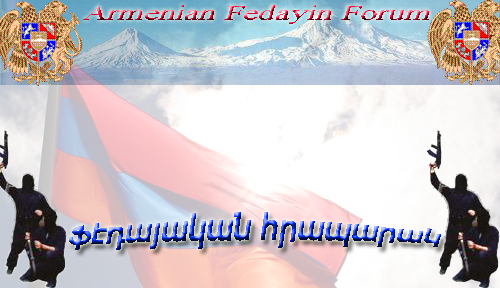Prime Minister Serzh Sarkisian has dismissed talk of his growing rift with President Robert Kocharian, insisting that their relationship emains “excellent” and will not be undermined by rivalry between political parties sponsored by Armenia’s two top leaders.
In an extensive interview with the French-Armenian magazine “Nouvelles d’Armenie,” Sarkisian said he and Kocharian have worked together too long to fall out now.
“If I insist that our relations are excellent, one may not believe me,” he said. “But those who have been able to observe our relations are surprised by these rumors. We have known each other for a long time and have worked together for 26 years. Our present rapport is one of two persons who have gone down the same path for 26 years.”
“And that path has not always been political: we have lived for six or seven years in very difficult conditions of war, and, thank God, have never had an occasion to part company,” he added, referring to their joint leadership of Nagorno-Karabakh during the early 1990s.
Having stood by Kocharian during his nearly decade-long presidency, Sarkisian is now believed to be intent on becoming Armenia’s next president. Kocharian does not seem to mind being succeeded by his influential associate. But the Armenian leader has indicated that he wants to remain in government in some other capacity, possibly as a prime minister, after completing his second and final term in office early next year. Some local observers say these putative plans do not sit well with Sarkisian and his Republican Party of Armenia (HHK), the top contender of next week’s parliamentary elections.
The Armenian press has been rife with speculation about a possible confrontation between the HHK millionaire businessman Gagik Tsarukian’s Prosperous Armenia Party (BHK), another election frontrunner widely seen as Kocharian’s new support base. Both parties have set themselves the task of winning the elections.
“As regards the Prosperous Armenia Party, it can in no case be an obstacle to our relations,” insisted Sarkisian, arguing that its program and ideology is “very close” to the HHK’s. “And all those who expect a struggle between us will be disappointed,” he said.
Kocharian has likewise left no indications so far that he is worried about the prospect of the HHK retaining the largest caucus in the National Assembly. Meeting with university students last week, he expressed hope that the new assembly will be controlled by the HHK, the BHK and two other pro-presidential parties.
The two Karabakh-born men made a rare joint public appearance on Friday when they visited the grave of the former Prime Minister Andranik Markarian, who died of heart failure on March 25. There were no visible signs of tension between them as they shook hands and spoke for several minutes at the national Pantheon in Yerevan.
In the magazine interview given during his recent visit to Paris, Sarkisian also said that he will stand in the 2008 presidential election if the Republicans win “sufficient votes” in the upcoming legislative polls. “If the Republican Party wins 25 percent of the vote, I will reckon that we have done a good job,” he said.
Other top Republicans have set far more ambitious targets, saying that they may well win an absolute majority of parliament seats. Opposition leaders, which refused to accept the legitimacy of the HHK’s victory in the previous elections, claim that this can only be achieved as a result of massive vote rigging.
Sarkisian, who is denunced by his political opponents as one of the architects of Armenia’s culture of electoral fraud, again stated that his party is committed to ensuring the freedom and fairness of the May 12 vote. He also denied that Western observers questioned the legitimacy of Armenia’s last presidential and parliamentary elections.
“Of course, they reported irregularities, but those did not affect the final result,” said Sarkisian. “If they had really considered the elections falsified, they would have never recognized the current [Armenian] authorities.”
